Put your bin out the night before
Make sure your food caddy is out by 6am on your collection day.
We suggest putting it out the night before.
Food waste is collected every week
In Bracknell Forest food waste is collected every week.
Use our collection day finder to find what day your collection is.
What goes in your caddy
You can put all food waste without packaging in your caddy.
| Yes | No |
|---|---|
| raw and cooked meat and fish (including bones) | packaging |
| cheese, eggs, eggshells and yoghurts | cutlery |
| cooked and uncooked vegetables, fruits and peelings | disposable plates and cups - even if labelled as biodegradable |
| bread, cakes and pastries | garden waste |
| tea bags and coffee grounds | pet waste |
| dry and wet pet food | anything that is not food |
| cooking oil - pour into a sealed plastic bottle and place in your outdoor food caddy | liquids such as milk (cooking oil is allowed in a plastic bottle) |
How to use your caddies
Indoor caddy
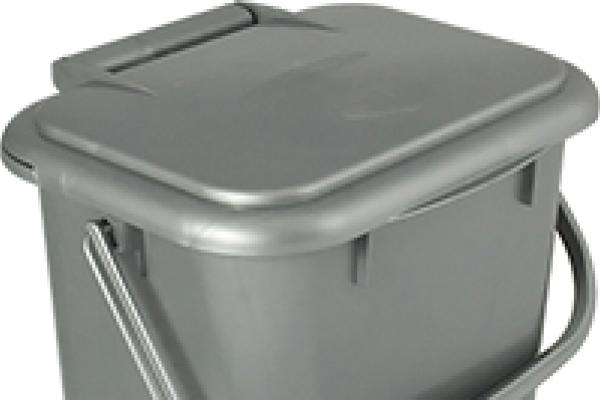
Keep your small caddy inside and put your food waste in it.
If you have small children or pets, it might be useful to keep it in the locked position.
Outdoor caddy
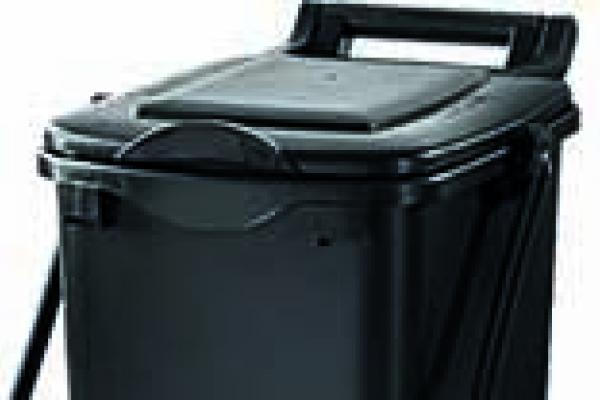
When your indoor caddy is full, empty it into your larger outdoor caddy.
Make sure this one is always in the locked position.
Caddy liners
You can line your indoor food caddies with the roll of liners. When these run out you can use bags left over from other food such as bread bags. There is no need to buy compostable bags as all bags will be removed before the food waste is processed and sent to a different waste plant for energy recovery.
You can choose not to line the caddy at all, just remember to regularly wash both caddies.
Where to put your caddy for collection
Kerbside
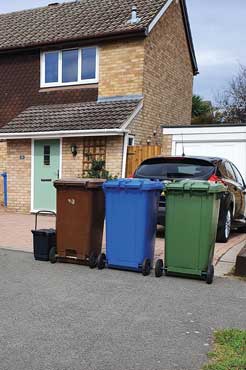
If you put your other bins on the kerbside, put your food caddy in the same place.
Private roads
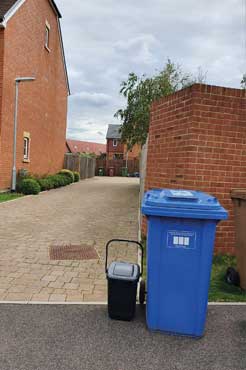
If you live on a private road, put your food caddy in the same place as you put your other bins.
Collection point
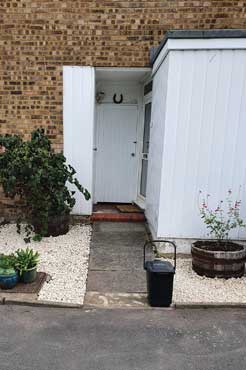
If you have a communal collection point and you do not live on a private road, leave the caddy at the edge of your property boundary.
Report an issue
To report an issue, such as a missed collection, a broken caddy, or a missing caddy, visit our bin issues page.
Food waste processing
This video shows how your food waste is processed at re3.